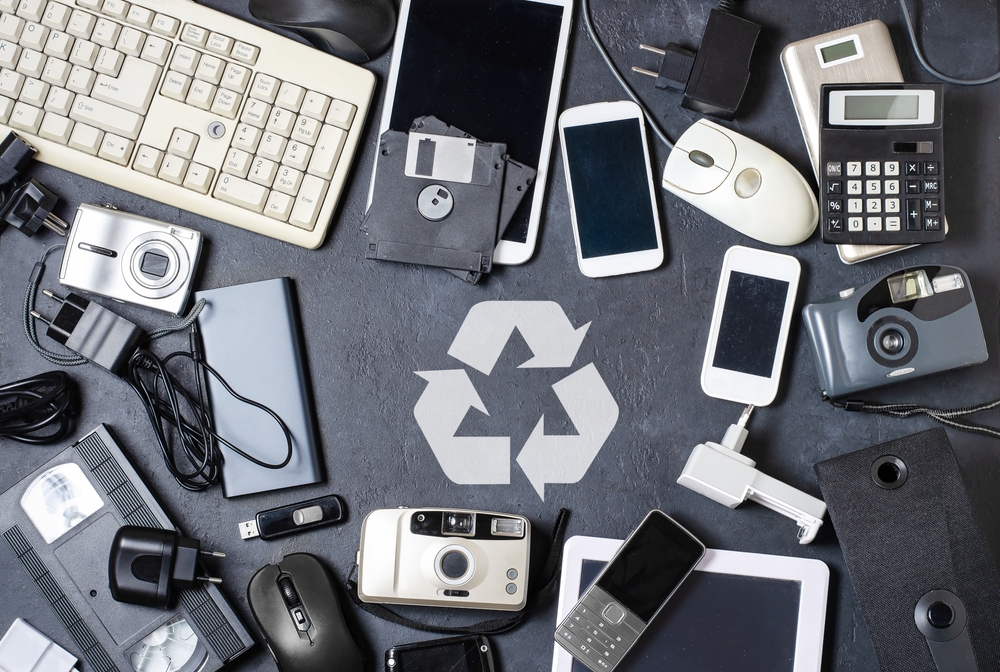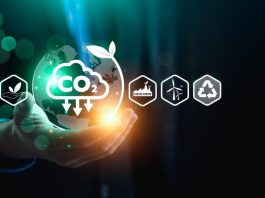As digital transformation continues to reshape business operations, the rise of artificial intelligence (AI) brings both new opportunities and challenges to waste management.
Sustainability experts from BusinessWaste.co.uk share insights into how the digital age is influencing waste reduction and management strategies.
From Paper to pixels: Reducing paper waste in the era of digital transformation
One of the most significant advantages of digital transformation is the dramatic reduction in paper usage.
Industries ranging from healthcare to legal services are increasingly adopting digital document storage solutions, eliminating the need for paper files.
Practices like online forms, digital menus, e-ticketing systems, online training, and digital advertising further contribute to this decline.
This shift not only conserves natural resources by saving trees and reducing the energy and water required for paper production, but it also results in substantial cost savings for businesses.
Financially, many companies experience a quick return on their digital transformation investments.
For instance, 59% of UK businesses that transitioned to paperless operations reported a full return on investment within 12 months and 84% within 18 months.
Slashing printer ink waste
With the reduction in paper usage comes a corresponding decrease in the demand for printing.
Digital transformation has led to increased digital document storage, which reduces the need for physical printers, thereby decreasing the use of ink and toner—materials that pose significant environmental challenges due to their hazardous disposal requirements.

By printing less, companies generate less waste from ink cartridges and toners, which are notoriously difficult to recycle.
This not only mitigates the environmental impact but also reduces the electronic waste associated with discarded printer hardware.
Reducing packaging waste through remote work and digital transformation
The rise of remote work, driven by digital transformation, has also led to a decline in packaging waste.
As more people work from home, whether on a hybrid model or fully remote, there is a noticeable reduction in the consumption of packaged goods.
This trend is most evident in the reduction of disposable items once common during commutes and lunch breaks—such as coffee cups and pre-packaged meals.
As a result, less packaging waste is generated, reducing the amount of waste sent to landfills and promoting more sustainable consumption patterns.
Lowering carbon emissions through virtual connectivity
Digital transformation has enabled a significant shift from physical to virtual meetings, a trend that gained momentum during the COVID-19 pandemic.
Businesses continue to rely on digital communication platforms like Zoom, Skype, and Microsoft Teams, reducing the need for business travel.
This shift not only cuts travel-related expenses but also lowers carbon emissions associated with flights, train journeys, and car travel.
The reduction in travel directly decreases fuel consumption and contributes to broader environmental benefits by reducing the carbon footprint of companies, a key advantage of digital transformation.
The growing challenge of e-waste in the age of digital transformation
Despite the environmental benefits of digital transformation, it also brings new challenges, particularly the increase in electronic waste (e-waste).
As businesses become more dependent on electronic devices such as computers, smartphones, and tablets, these items are replaced more frequently due to rapid technological obsolescence.

The disposal of these devices, especially their lithium-ion batteries, presents significant recycling challenges due to the complex materials involved.
Mark Hall, co-founder of Business Waste, added: ” To truly capitalise on the environmental benefits of digital transformation, businesses and policymakers must focus on improving e-waste recycling technologies and developing better waste management strategies.
“By doing so, we’ll move towards a digital future that is both technologically advanced and environmentally sustainable.”
While digital transformation offers a myriad of environmental benefits—from reducing paper and packaging waste to lowering carbon emissions—it also brings new challenges, particularly in managing the surge of e-waste.
As businesses continue to evolve in the digital age, it is crucial to adopt sustainable practices that address both the opportunities and the pitfalls of this transformation.
By prioritising responsible e-waste management and investing in innovative recycling technologies, companies can ensure that their digital future is not only efficient and innovative but also environmentally responsible.









